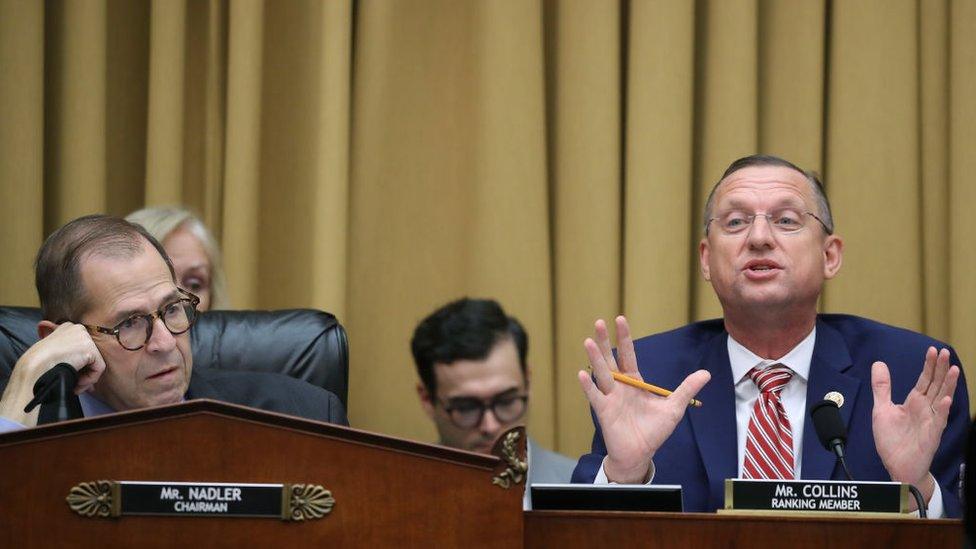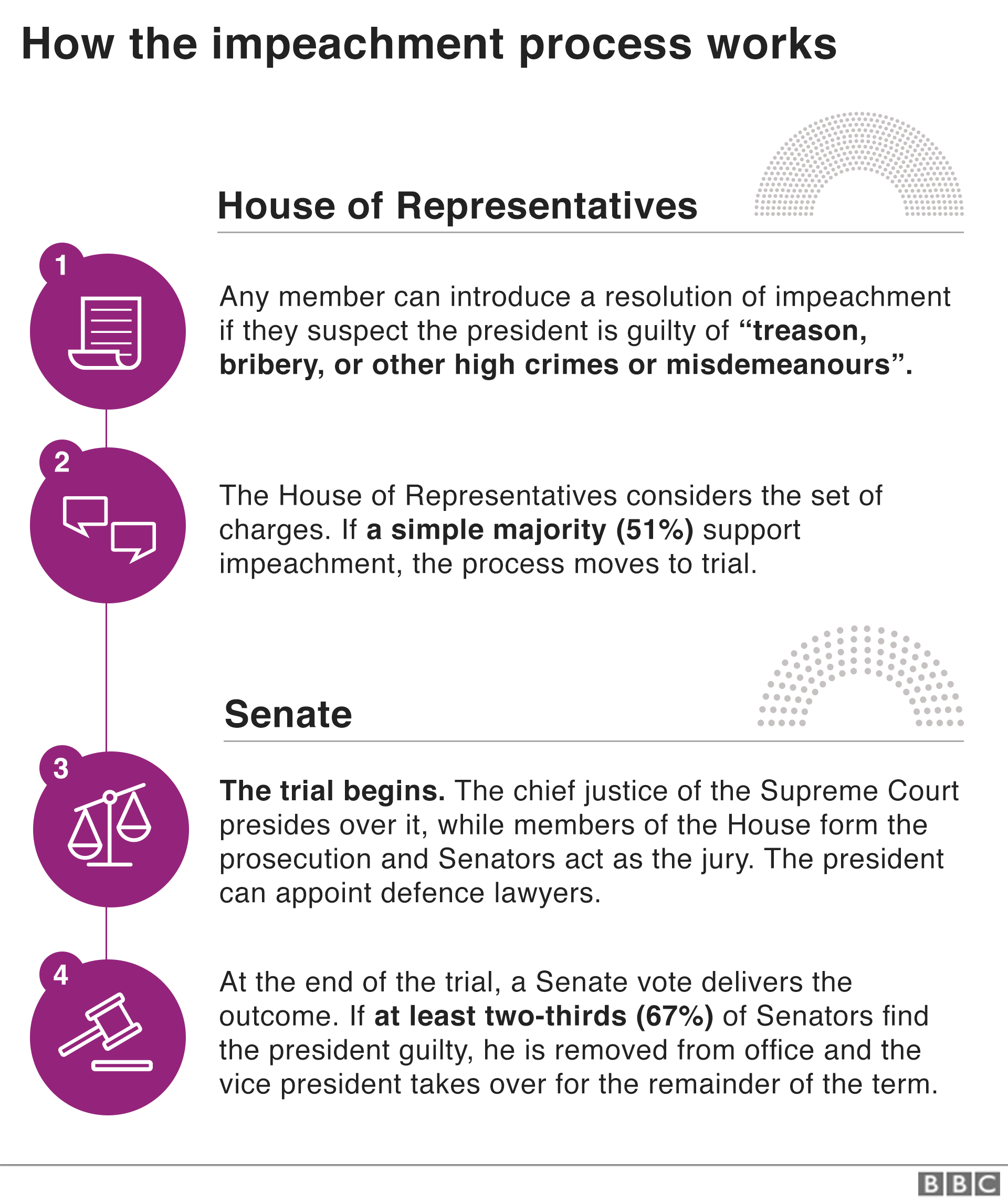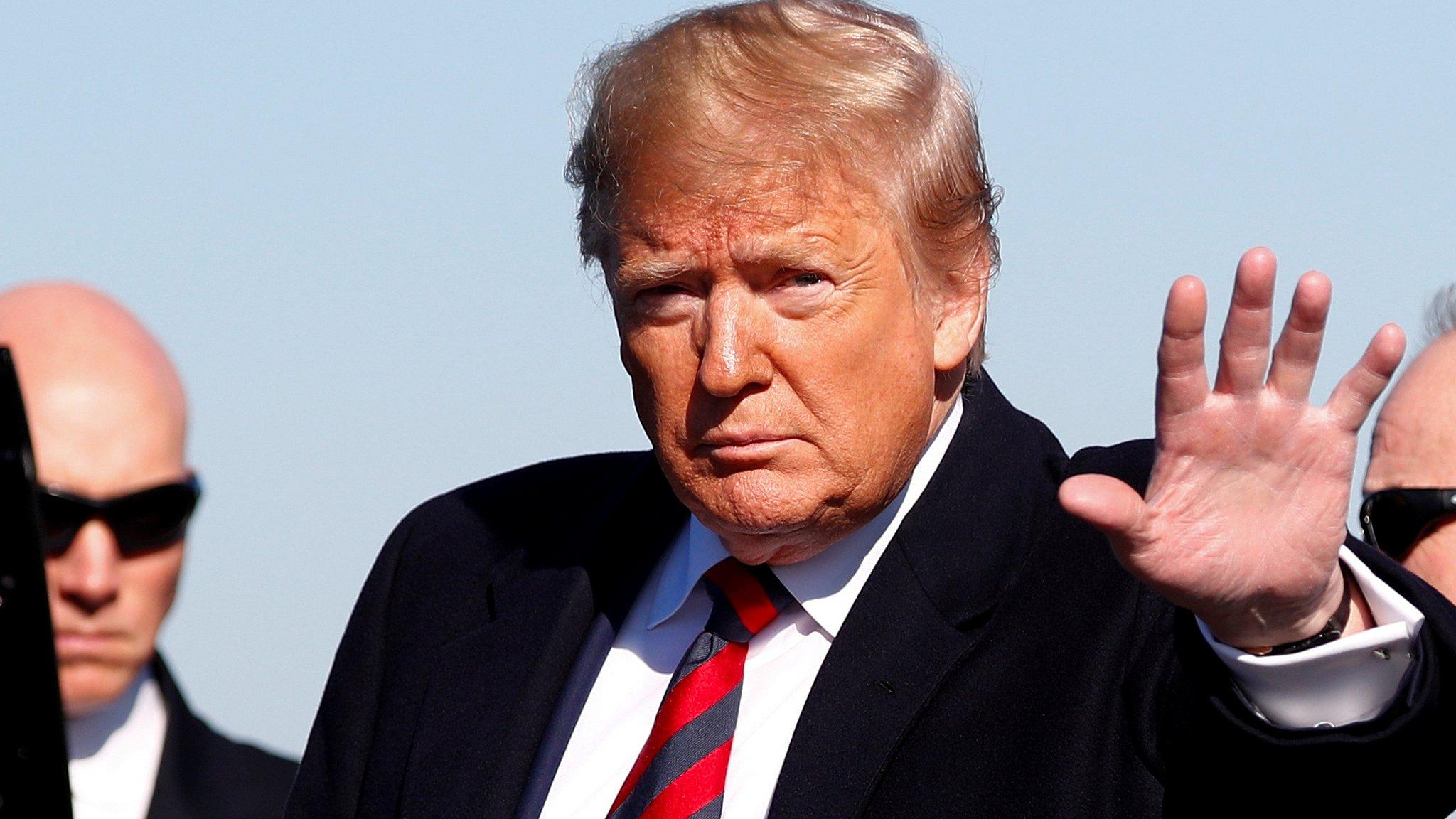House Democrats step up Trump impeachment inquiry
- Published

Democratic chairman Jerry Nadler (left) and ranking member Doug Collins
A US congressional committee has voted to press ahead with an impeachment inquiry of President Donald Trump.
The Democratic-controlled House Committee on the Judiciary voted along strict party lines to designate certain hearings as impeachment sessions.
The panel says it hopes to decide whether to recommend impeachment to the full House by the end of the year.
However, the Republican majority in the Senate means any eventual trial of the president would be likely to fail.
What exactly did the House committee just do?
The House panel voted 24-17 on Thursday on a procedural step to approve guidelines for its investigation of the president, including allowing lawyers to question witnesses publicly.
The committee has been frustrated by the refusal of several current and former White House officials to testify in its ongoing hearings.
Democratic committee chairman Jerry Nadler said as he opened the proceedings: "Some call this process an impeachment inquiry. Some call it an impeachment investigation.
"There is no legal difference between these terms, and I no longer care to argue about the nomenclature.
What does it take to impeach a president?
"But let me clear up any remaining doubt: the conduct under investigation poses a threat to our democracy. We have an obligation to respond to this threat. And we are doing so."
According to the Washington Post, any possible charges against Mr Trump could include obstruction of justice, abuse of power and defiance of subpoenas.
But the Democrats' move was scorned by Republicans.
Georgia congressman Doug Collins, the top Republican on the committee, said: "My colleagues know very well they don't have the votes to authorise impeachment proceedings on the House floor, but they want to impeach the president anyway.
"So, they are pretending to initiate impeachment."
What's the political calculation?
Most US voters (59%) oppose removing the president from office, according to a recent opinion poll, external.
The Democratic leadership is concerned that an impeachment inquiry could backfire ahead of next year's presidential election.
If the judiciary committee recommended articles of impeachment to the full House of Representatives, it would require a simple majority to proceed to a trial in the Senate.
But only a minority of House lawmakers, all liberal Democrats, currently support such a drastic step.
Democrats have characterised the proceedings in different ways.
House Democratic leader, Speaker Nancy Pelosi, has avoided the I-word, emphasising instead that the committees wishes to "legislate, investigate and litigate".
On Wednesday, House Democratic whip Steny Hoyer, of Maryland, indicated to journalists there was no impeachment investigation.
He later said he had misconstrued the question as referring to "whether the full House is actively considering articles of impeachment, which we are not at this time".

Is there a precedent?
Overshadowing Democratic calculations is the case of former President Bill Clinton, who was impeached under a Republican-controlled house in the 1990s but cleared in the Senate.
Mr Clinton's popularity skyrocketed afterwards, and Democrats are fearful of handing Mr Trump a similar victory.
The only other American president to have been impeached was Andrew Johnson in 1868, and the Senate didn't convict him either.
- Published19 December 2019

- Published9 September 2019